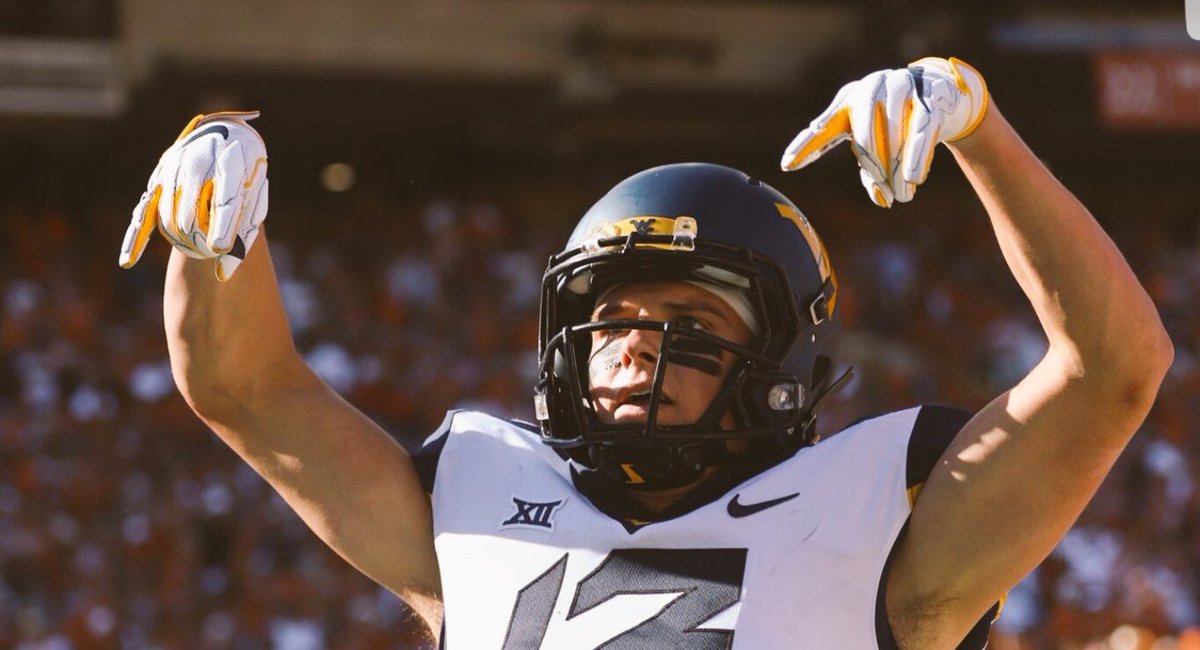ARLINGTON, Texas – Big 12 director of officiating Greg Burks clarified the league’s stance on Texas’ opponents flashing the “Horns Down” sign Tuesday morning.
In short, teams can do it – just as long as they don’t get caught.
“If somebody scores quickly, turns to their cheering section, and it’s quick and they move on, we’re not going to do anything with that,” Burks said. “If it’s to the bench or to another player, if it’s prolonged, it would be an unsportsmanlike act.
“It’s a hot topic. I know people want us to be definitive on that, but it’s like any touchdown celebration. Is it directed at an opponent, or just celebration with your teammates? What if they direct it at fans?”
Burks said Will Grier’s flashing of the sign after scoring a go-ahead 2-point conversion at Texas last season was correctly penalized.
“That probably would be a foul in that situation,” Burks said. “Anthing that’s prolonged to bring attention to the individual rather than the team is a foul.”
Burks didn’t give a green light to flash the Horns Down, but he did give a yellow light of sorts.
“My advice is if you want to do that, do it back in your bench area, back with your teammates,” Burks said. “Get away from where you are an individual drawing attention to yourself.”
Targeting changes
In theory, it will be a little harder for players to get ejected for targeting this season. Thanks to a rule change, an ejection will only occur if “all the elements of targeting are confirmed” in the replay booth.
The elements are “a launch, a crouch, a thrust, leading with the helmet, the forearm, lowering the head.”
Burks said there will be more emphasis on intent now.
“The biggest change in the rule book this year is the word ‘attacking.’ We have had some targeting fouls in the past where a player really is not initiating the contact but there has been helmet-to-helmet,” Burks said. “Without that attacking piece, targeting would not stand this year.”
Another new wrinkle is that any player who receives three targeting flags in a season will serve a one-game suspension.
Wedge busted
The two-man wedge is the latest element of the kickoff return to go extinct. Players are no longer allowed to run up the field together to block a single player, though double-team blocks are still legal if they arrive from different angles.
If two players move forward together in a wedge once the kick is in play, their team will be assessed an unsportsmanlike conduct penalty. However, that penalty would not go towards the automatic ejection that was enacted upon a player getting two unsportsmanlike conducts.
Cutting OT hours
Another new rule this year regards overtime. Following four overtime periods, the game will be decided on 2-point conversion attempts – not unlike penalty kicks at the end of soccer games.
The rule was a reaction to Texas A&M’s 74-72, seven-overtime win over LSU last season.
“The number of plays in a seven-overtime is deemed to be unsafe,” Burks said.
West Virginia has never played a game to last longer than three overtimes.




